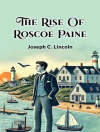In ‘Roland Yorke, ‘ Henry Mrs. Wood crafts a compelling narrative set against the backdrop of Victorian England, exploring themes of identity, ambition, and social class. The novel’s richly drawn characters and intricate plot weave a tapestry of human experience that reflects the struggles and aspirations of individuals navigating a rapidly changing society. Wood’s prose is characterized by its clarity and emotional depth, capturing the nuances of her characters’ inner lives while simultaneously critiquing the societal constraints of her time. The novel stands as a significant contribution to the genre of bildungsroman, offering insights into the formative experiences that shape one’s destiny. Henry Mrs. Wood was a prolific writer whose extensive body of work encompassed novels, short stories, and social commentary. Born into a middle-class family, her experiences and observations of Victorian societal standards profoundly influenced her writing. Mrs. Wood’s keen insight into the complexities of marriage, gender constraints, and class can be traced through her characters and plots, making her an essential voice in the literature of the period, particularly in exploring the struggles faced by women and the working class. ‘Roland Yorke’ is highly recommended for readers interested in rich character development and the exploration of societal norms. Wood’s narrative strategy not only captures the essence of her characters but prompts readers to question the very fabric of their reality. This novel remains a timeless exploration of personal growth and the societal structures that challenge it.
Tentang Penulis
Born as Ellen Price on January 17, 1814, in Worcester, England, ‘Mrs. Henry Wood’ was the nom de plume adopted by Ellen Wood, a prolific 19th-century English novelist. Her work earned her substantial commercial success and a lasting place in Victorian literature. Wood’s literary career began earnestly after she married Henry Wood in 1836. She has been frequently recognized for penetrating the veneer of Victorian respectability to expose the underlying issues of morality, social stratification, and gender dynamics that plagued her era. Wood’s most famous novel, ‘East Lynne’ (1861), one of the earliest sensation novels, epitomizes her characteristic melding of domestic realism and melodrama and set the tone for her future works. ‘Roland Yorke’ (1869), the sequel to ‘The Channings’ (1862), is another notable work that illustrates her adept storytelling and exploration of character psychology. Though her novels were not universally admired by critics, some of whom decried her melodramatic plotlines, she enjoyed immense popularity among readers of her time. Her influence persisted beyond her death in 1887, as several of her compositions continued to be adapted for the stage and screen, a testament to the enduring appeal of her storytelling prowess. Wood’s literary style, characterized by strong narratives and intricate plot twists, has earned her an indelible legacy as a cornerstone in the landscape of Victorian literature.












